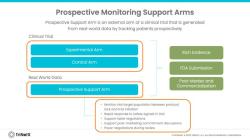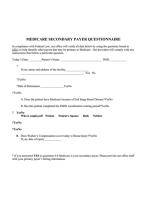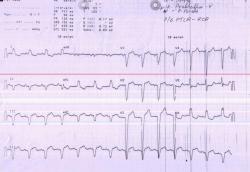Does levothyroxine cause weight gain or loss?
Levothyroxine is a medication commonly used to treat an underactive thyroid gland (hypothyroidism). Whether levothyroxine causes weight gain or weight loss can depend on several factors:
Correcting Hypothyroidism: Levothyroxine is typically prescribed to treat hypothyroidism, a condition where the thyroid gland doesn't produce enough thyroid hormones. One of the primary symptoms of hypothyroidism is unexplained weight gain. When levothyroxine is used to restore normal thyroid hormone levels, it can help reverse this weight gain and may lead to weight loss, especially if the weight gain was related to the thyroid issue.
Individual Response: The impact of levothyroxine on weight can vary from person to person. Some individuals with hypothyroidism may experience weight loss as their thyroid function improves with treatment, while others may not see significant changes in weight.
Proper Dosage: Achieving the right dosage of levothyroxine is crucial. Too much or too little of the medication can affect weight. It's essential to work closely with a healthcare provider to determine the correct dosage based on regular thyroid function tests.
Other Factors: Weight management is influenced by a variety of factors, including diet, exercise, metabolism, and genetics. Levothyroxine may not directly address lifestyle factors that contribute to weight changes.
Changes in Appetite: Some individuals may experience changes in appetite when taking levothyroxine, which can affect their eating habits and, subsequently, their weight. It's important to be mindful of these changes and maintain a balanced diet.
Other Medications: Levothyroxine interactions with other medications can impact weight. Certain medications may affect metabolism or appetite and, when used in conjunction with levothyroxine, can influence weight changes.
Thyroid Disorders Beyond Hypothyroidism: Levothyroxine is primarily used to treat hypothyroidism. Weight changes associated with other thyroid disorders, such as hyperthyroidism (an overactive thyroid), may be different and require different treatments.
If you are concerned about weight changes while taking levothyroxine or have questions about your specific situation, it's crucial to consult with a healthcare provider. They can assess your thyroid function, adjust medication dosages if necessary, and provide guidance on maintaining a healthy lifestyle to manage weight effectively. Weight management should be approached holistically, considering diet, physical activity, and overall health in addition to thyroid function and medication.
Levothyroxine and Its Potential Effects on Weight
Levothyroxine is a medication used to treat hypothyroidism, a condition in which the thyroid gland does not produce enough thyroid hormone. Thyroid hormone plays a role in many bodily functions, including metabolism.
Weight Changes and Levothyroxine: Understanding the Connection
Weight gain is a common symptom of hypothyroidism. When the thyroid gland does not produce enough thyroid hormone, the metabolism slows down and the body burns fewer calories. This can lead to weight gain, even if people eat the same amount of food.
Levothyroxine helps to replace the missing thyroid hormone and restore metabolism to normal levels. This can lead to weight loss in people who are overweight or obese due to hypothyroidism.
However, it is important to note that levothyroxine is not a weight loss drug. It should only be used to treat hypothyroidism. Taking too much levothyroxine can cause hyperthyroidism, a condition in which the thyroid gland produces too much thyroid hormone. Hyperthyroidism can also lead to weight loss, but it can also cause other serious health problems, such as heart problems and anxiety.
Exploring the Impact of Levothyroxine on Body Weight
The impact of levothyroxine on body weight can vary from person to person. Some people may experience weight loss, while others may not. Some people may even experience weight gain.
The amount of weight loss that people experience with levothyroxine treatment depends on a number of factors, including:
- The severity of the hypothyroidism.
- The dose of levothyroxine.
- Other medical conditions.
- Diet and exercise habits.
It is important to work with a doctor to find the right dose of levothyroxine and to develop a healthy diet and exercise plan to help achieve weight loss goals.
Here are some tips for managing weight while taking levothyroxine:
- Eat a healthy diet that is low in processed foods and high in fruits, vegetables, and whole grains.
- Exercise regularly. Aim for at least 30 minutes of moderate-intensity exercise most days of the week.
- Monitor your weight regularly and talk to your doctor if you are not losing weight or if you are gaining weight.
If you are taking levothyroxine and are concerned about your weight, talk to your doctor. They can help you to develop a plan to manage your weight and achieve your health goals.













